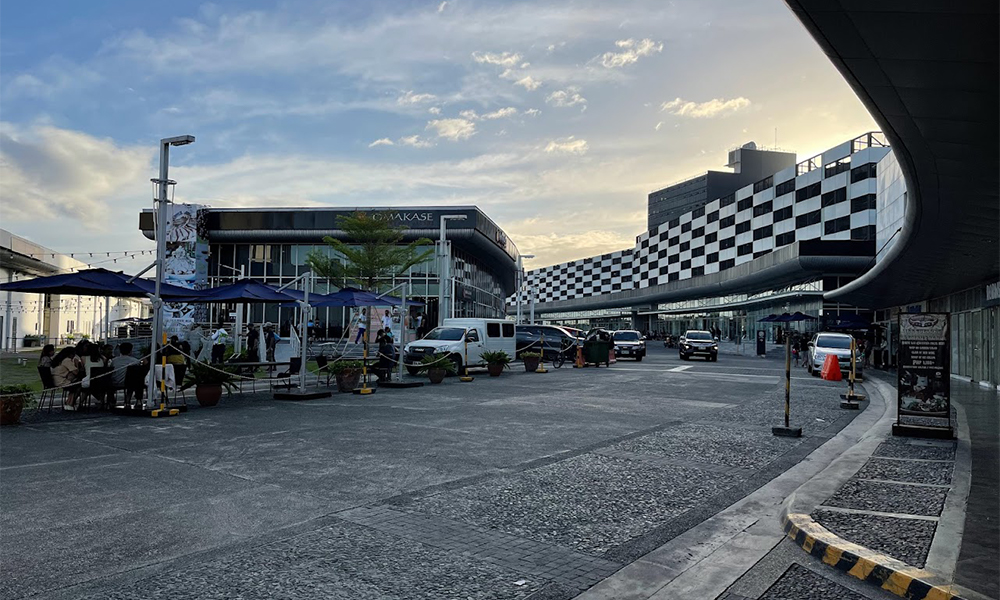
Cyclists who recently visited the Molito Lifestyle Center in Alabang for a cup of coffee or to do their usual errands and groceries, probably got shocked when they found out that the strip-mall complex had begun charging P20 for bicycle parking.
In a now-viral video posted by Will Villanueva, he recounted how he originally intended to have breakfast in one of its establishments, only to have to detour to a different place after learning of the parking fee levied for his bike. Barring grace periods, a parking fee is effectively also an entrance fee.
The community generally agreed with his opinion, even having some celebrities chime in.

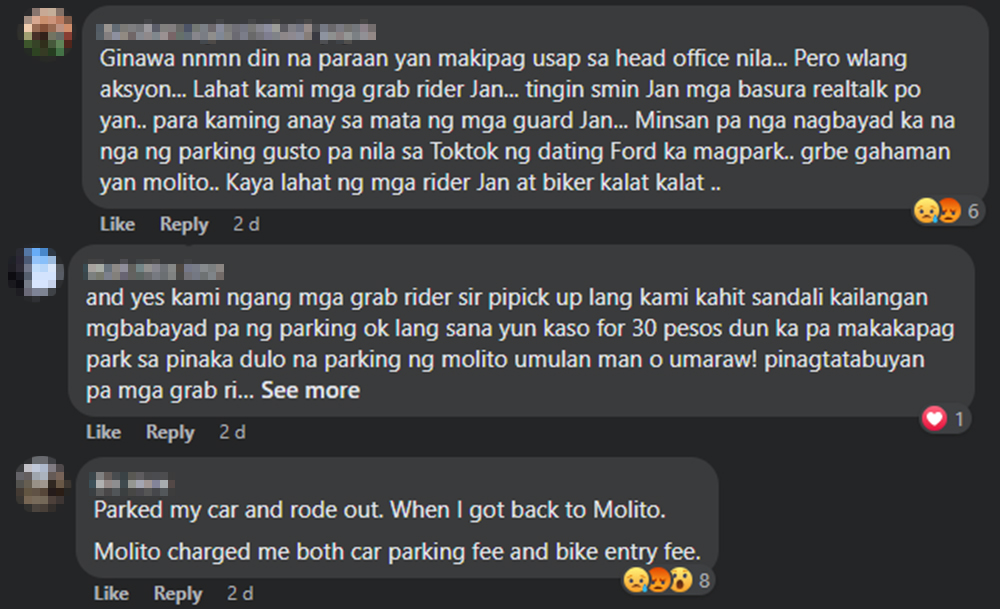
Charging for bike parking may sound fair to those more experienced with getting about using private vehicles. After all, they’re using up space like parked cars do, so they should pay, right? Well, basic economics is at play here.
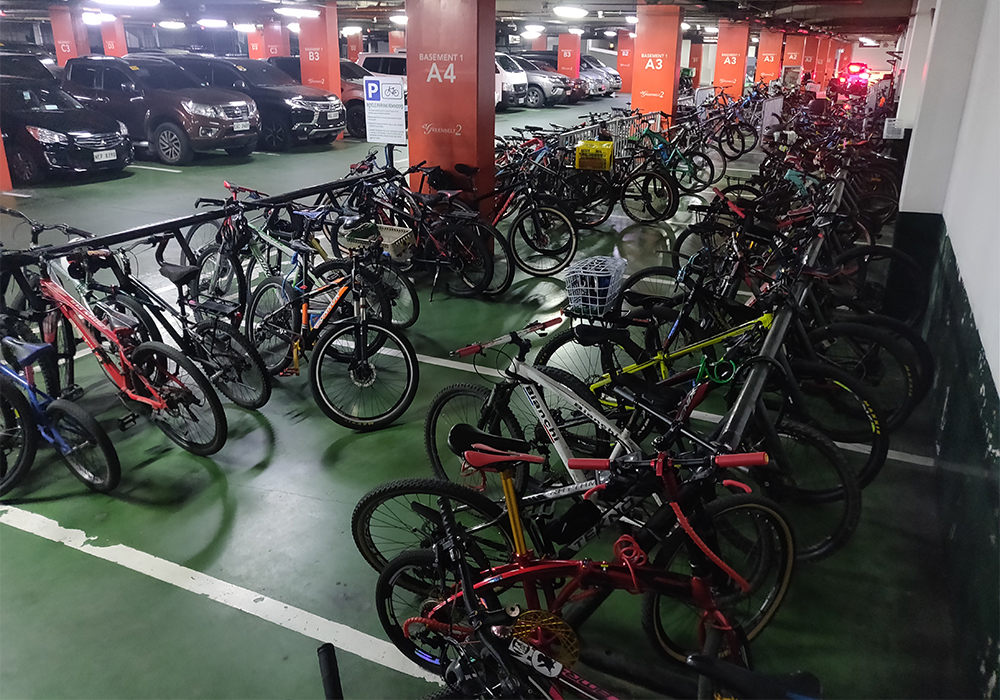
Price affects demand. Increase the price of a product or a service and the demand should drop. Lower the price and demand should increase. There are some other things such as price elasticity and how price affects supply, but we can forgo those for now.
What do you do if you want to reduce demand or, say, you would want to curb motor vehicle usage? Simple, you increase the price of parking. That’s partly the reason parking in our central business districts costs an arm and a leg, and pricing for both our expressways and congestion zones abroad follows a similar thread. Cars tend to use up a lot of real estate, too, so there’s logic in wanting to curb their use.
So, what happens if you start charging cyclists for entering your premises? They would either bring their business elsewhere, or they’ll bring their car instead and cost valuable space and pavement wear and tear. With the advent of food delivery apps, these restrictive policies put pressure on delivery riders, too. This spells disaster for the mall’s tenants who rely on customers and deliveries for their income.
Several businesses in the vicinity have come out in support of active mobility:
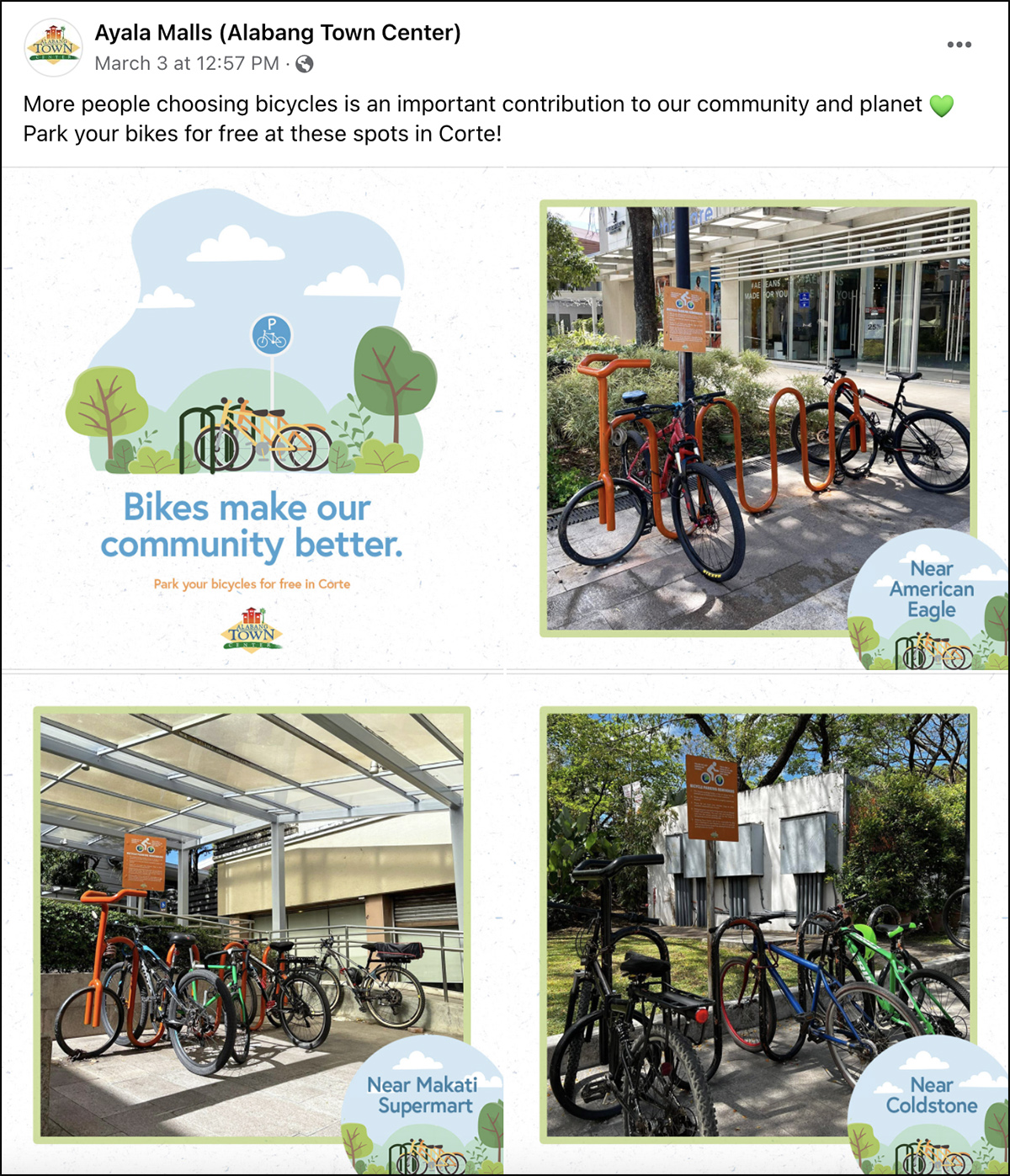
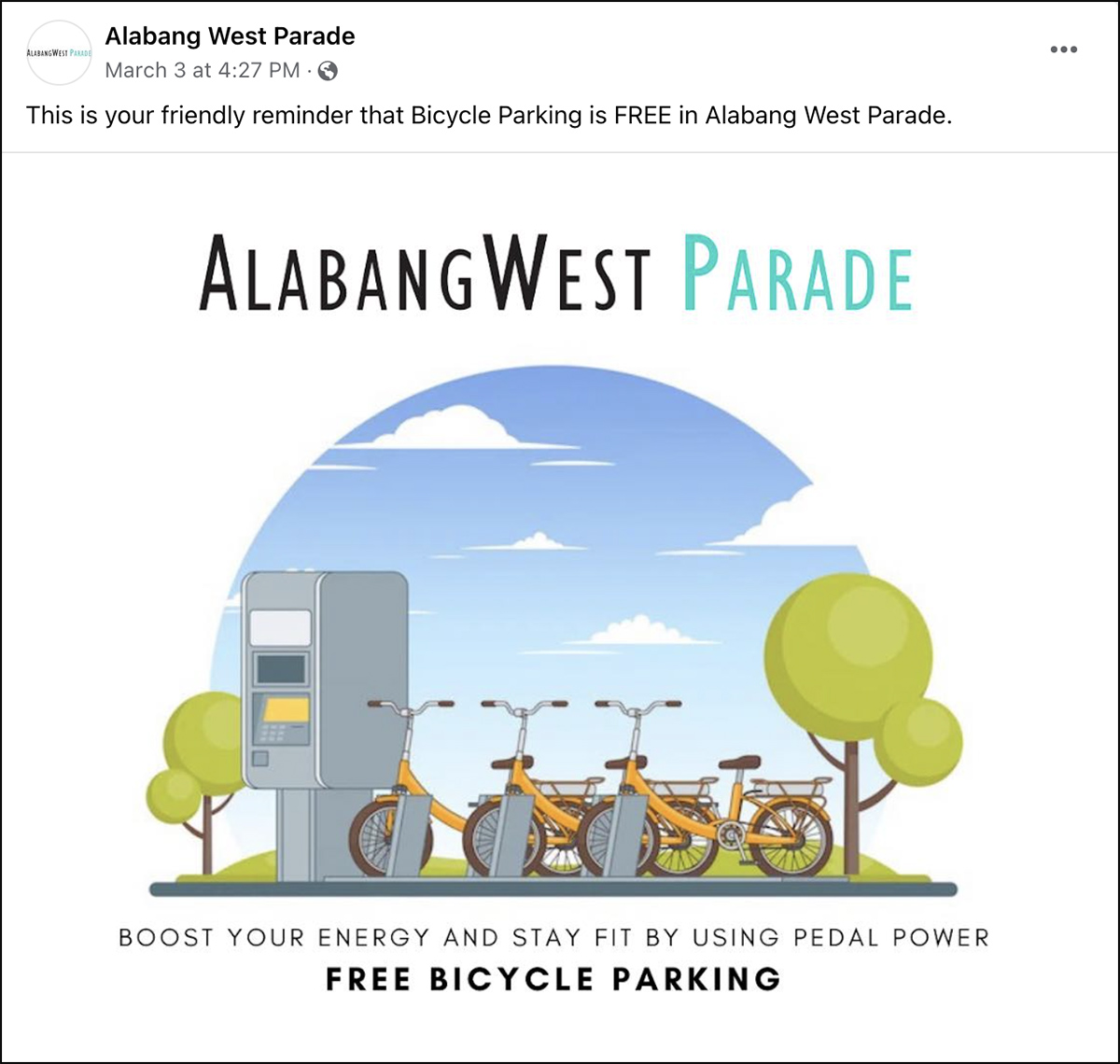
They know that cycling is a different ballgame, and applying the same rules for private vehicles simply won’t work. Take for example the parking spat between cyclists and the Makati Commercial Estate Association (MACEA) last year. Bike users were cited for allegedly obstructing an on-street parking slot intended for cars. A coffeeshop located in the area helped the cyclists air their concerns to the association. The talks ended in the construction of a bike rack that never ceases to be empty, alongside business that is booming not just for the café but also for the restaurants and the shops surrounding it as well.
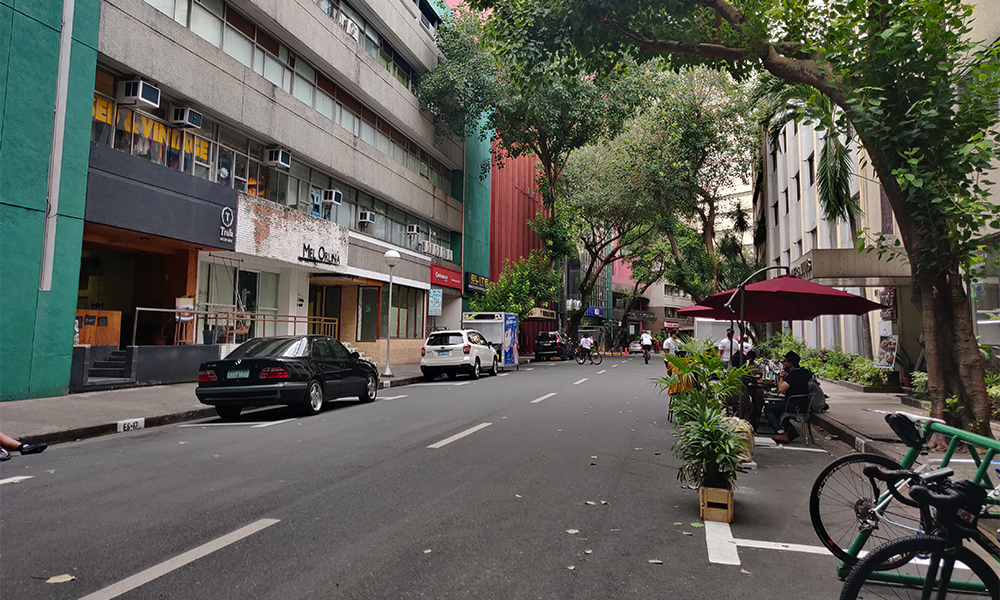
There’s a lot that happens beyond what a policy is intended for, and we hope that other establishments and agencies think twice about possible externalities and repercussions before implementing such. We hope the management of Molito rethinks their stance so their tenants don’t lose out on business and cyclists don’t have to unfairly pay a fee every time they visit. Motorists would have more parking slots to use since some would choose to use their bicycle instead, and delivery riders would feel more welcome given how integral they are to modern life. And we, as a society overall, don’t lose out on cleaner air and safer streets with less cars and more bicycles on the road.
A win-win situation all around, don’t you think? Ball’s in your court, Molito.


0 Comments